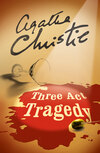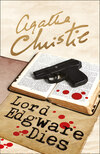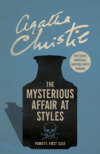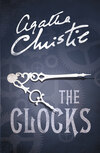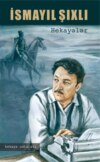Kitabı oku: «Murder on the Orient Express», sayfa 3
The man spoke somewhat jerkily.
‘The valet of this M. Ratchett, he tapped several times at the door this morning. There was no answer. Then, half an hour ago, the restaurant-car attendant came. He wanted to know if Monsieur was taking déjeuner. It was eleven o’clock, you comprehend.
‘I open the door for him with my key. But there is a chain, too, and that is fastened. There is no answer and it is very still in there, and cold—but cold. With the window open and snow drifting in. I thought the gentleman had had a fit, perhaps. I got the chef de train. We broke the chain and went in. He was—Ah! c’était terrible!’
He buried his face in his hands again.
‘The door was locked and chained on the inside,’ said Poirot thoughtfully. ‘It was not suicide—eh?’
The Greek doctor gave a sardonic laugh.
‘Does a man who commits suicide stab himself in ten—twelve—fifteen places?’ he asked.
Poirot’s eyes opened.
‘That is great ferocity,’ he said.
‘It is a woman,’ said the chef de train, speaking for the first time. ‘Depend upon it, it was a woman. Only a woman would stab like that.’
Dr Constantine screwed up his face thoughtfully.
‘She must have been a very strong woman,’ he said. ‘It is not my desire to speak technically—that is only confusing—but I can assure you that one or two of the blows were delivered with such force as to drive them through hard belts of bone and muscle.’
‘It was not, clearly, a scientific crime,’ said Poirot.
‘It was most unscientific,’ said Dr Constantine. ‘The blows seem to have been delivered haphazard and at random. Some have glanced off, doing hardly any damage. It is as though somebody had shut their eyes and then in a frenzy struck blindly again and again.’
‘C’est une femme,’ said the chef de train again. ‘Women are like that. When they are enraged they have great strength.’ He nodded so sagely that everyone suspected a personal experience of his own.
‘I have, perhaps, something to contribute to your store of knowledge,’ said Poirot. ‘M. Ratchett spoke to me yesterday. He told me, as far as I was able to understand him, that he was in danger of his life.’
‘“Bumped off”—that is the American expression, is it not?’ said M. Bouc. ‘Then it is not a woman. It is a “Gangster” or a “gunman.”’
The chef de train looked pained at his theory having come to naught.
‘If so,’ said Poirot, ‘it seems to have been done very amateurishly.’
His tone expressed professional disapproval.
‘There is a large American on the train,’ said M. Bouc, pursuing his idea—‘a common-looking man with terrible clothes. He chews the gum which I believe is not done in good circles. You know whom I mean?’
The Wagon Lit conductor to whom he had appealed nodded.
‘Oui, Monsieur, the No. 16. But it cannot have been he. I should have seen him enter or leave the compartment.’
‘You might not. You might not. But we will go into that presently. The question is, what to do?’ He looked at Poirot.
Poirot looked back at him.
‘Come, my friend,’ said M. Bouc. ‘You comprehend what I am about to ask of you. I know your powers. Take command of this investigation! No, no, do not refuse. See, to us it is serious—I speak for the Compagnie Internationale des Wagons Lits. By the time the Yugo-Slavian police arrive, how simple if we can present them with the solution! Otherwise delays, annoyances, a million and one inconveniences. Perhaps, who knows, serious annoyance to innocent persons. Instead—you solve the mystery! We say, “A murder has occurred—this is the criminal!”’
‘And suppose I do not solve it?’
‘Ah! mon cher.’ M. Bouc’s voice became positively caressing. ‘I know your reputation. I know something of your methods. This is the ideal case for you. To look up the antecedents of all these people, to discover their bona fides—all that takes time and endless inconvenience. But have I not heard you say often that to solve a case a man has only to lie back in his chair and think? Do that. Interview the passengers on the train, view the body, examine what clues there are and then—well, I have faith in you! I am assured that it is no idle boast of yours. Lie back and think—use (as I have heard you say so often) the little grey cells of the mind—and you will know!’
He leaned forward, looking affectionately at his friend.
‘Your faith touches me, my friend,’ said Poirot emotionally. ‘As you say, this cannot be a difficult case. I myself, last night—but we will not speak of that now. In truth, this problem intrigues me. I was reflecting, not half an hour ago, that many hours of boredom lay ahead whilst we are stuck here. And now—a problem lies ready to my hand.’
‘You accept then?’ said M. Bouc eagerly.
‘C’est entendu. You place the matter in my hands.’
‘Good—we are all at your service.’
‘To begin with, I should like a plan of the Istanbul-Calais coach, with a note of the people who occupied the several compartments, and I should also like to see their passports and their tickets.’
‘Michel will get you those.’
The Wagon Lit conductor left the compartment.
‘What other passengers are there on the train?’ asked Poirot.
‘In this coach Dr Constantine and I are the only travellers. In the coach from Bucharest is an old gentleman with a lame leg. He is well known to the conductor. Beyond that are the ordinary carriages, but these do not concern us, since they were locked after dinner had been served last night. Forward of the Istanbul-Calais coach there is only the dining-car.’
‘Then it seems,’ said Poirot slowly, ‘as though we must look for our murderer in the Istanbul-Calais coach.’ He turned to the doctor. ‘That is what you were hinting, I think?’
The Greek nodded.
‘At half an hour after midnight we ran into the snowdrift. No one can have left the train since then.’
M. Bouc said solemnly.
‘The murderer is with us—on the train now…’
Chapter 6
A Woman?
‘First of all,’ said Poirot, ‘I should like a word or two with young M. MacQueen. He may be able to give us valuable information.’
‘Certainly,’ said M. Bouc.
He turned to the chef de train.
‘Get M. MacQueen to come here.’
The chef de train left the carriage.
The conductor returned with a bundle of passports and tickets. M. Bouc took them from him.
‘Thank you, Michel. It would be best now, I think, if you were to go back to your post. We will take your evidence formally later.’
‘Very good, Monsieur.’
Michel in his turn left the carriage.
‘After we have seen young MacQueen,’ said Poirot, ‘perhaps M. le docteur will come with me to the dead man’s carriage.’
‘Certainly.’
‘After we have finished there—’
But at this moment the chef de train returned with Hector MacQueen.
M. Bouc rose.
‘We are a little cramped here,’ he said pleasantly. ‘Take my seat, M. MacQueen. M. Poirot will sit opposite you—so.’
He turned to the chef de train.
‘Clear all the people out of the restaurant-car,’ he said, ‘and let it be left free for M. Poirot. You will conduct your interviews there, mon cher?’
‘It would be the most convenient, yes,’ agreed Poirot.
MacQueen had stood looking from one to the other, not quite following the rapid flow of French.
‘Qu’est ce qu’il y a?’ he began laboriously. ‘Pourquoi—?’
With a vigorous gesture Poirot motioned him to the seat in the corner. He took it and began once more.
‘Pourquoi—?’ then, checking himself and relapsing into his own tongue, ‘What’s up on the train? Has anything happened?’
He looked from one man to another.
Poirot nodded.
‘Exactly. Something has happened. Prepare yourself for a shock. Your employer, M. Ratchett, is dead!’
MacQueen’s mouth pursed itself in a whistle. Except that his eyes grew a shade brighter, he showed no signs of shock or distress.
‘So they got him after all,’ he said.
‘What exactly do you mean by that phrase, M. MacQueen?’ MacQueen hesitated.
‘You are assuming,’ said Poirot, ‘that M. Ratchett was murdered?’
‘Wasn’t he?’ This time MacQueen did show surprise. ‘Why, yes,’ he said slowly. ‘That’s just what I did think. Do you mean he just died in his sleep? Why, the old man was as tough as—as tough—’
He stopped, at a loss for a simile.
‘No, no,’ said Poirot. ‘Your assumption was quite right. Mr Ratchett was murdered. Stabbed. But I should like to know why you were so sure it was murder, and not just—death.’
MacQueen hesitated.
‘I must get this clear,’ he said. ‘Who exactly are you? And where do you come in?’
‘I represent the Compagnie Internationale des Wagons Lits.’ He paused, then added, ‘I am a detective. My name is Hercule Poirot.’
If he expected an effect he did not get one. MacQueen said merely, ‘Oh, yes?’ and waited for him to go on.
‘You know the name, perhaps.’
‘Why, it does seem kind of familiar—only I always thought it was a woman’s dressmaker.’
Hercule Poirot looked at him with distaste.
‘It is incredible!’ he said.
‘What’s incredible?’
‘Nothing. Let us advance with the matter in hand. I want you to tell me, M. MacQueen, all that you know about the dead man. You were not related to him?’
‘No. I am—was—his secretary.’
‘For how long have you held that post?’
‘Just over a year.’
‘Please give me all the information you can.’
‘Well, I met Mr Ratchett just over a year ago when I was in Persia—’
Poirot interrupted.
‘What were you doing there?’
‘I had come over from New York to look into an oil concession. I don’t suppose you want to hear all about that. My friends and I had been let in rather badly over it. Mr Ratchett was in the same hotel. He had just had a row with his secretary. He offered me the job and I took it. I was at a loose end, and glad to find a well-paid job ready made, as it were.’
‘And since then?’
‘We’ve travelled about. Mr Ratchett wanted to see the world. He was hampered by knowing no languages. I acted more as a courier than as a secretary. It was a pleasant life.’
‘Now tell me as much as you can about your employer.’
The young man shrugged his shoulders. A perplexed expression passed over his face.
‘That’s not so easy.’
‘What was his full name?’
‘Samuel Edward Ratchett.’
‘He was an American citizen?’
‘Yes.’
‘What part of America did he come from?’
‘I don’t know.’
‘Well, tell me what you do know.’
‘The actual truth is, Mr Poirot, that I know nothing at all! Mr Ratchett never spoke of himself, or of his life in America.’
‘Why do you think that was?’
‘I don’t know. I imagined that he might have been ashamed of his beginnings. Some men are.’
‘Does that strike you as a satisfactory solution?’
‘Frankly, it doesn’t.’
‘Has he any relations?’
‘He never mentioned any.’
Poirot pressed the point.
‘You must have formed some theory, M. MacQueen.’
‘Well, yes, I did. For one thing, I don’t believe Ratchett was his real name. I think he left America definitely in order to escape someone or something. I think he was successful—until a few weeks ago.’
‘And then?’
‘He began to get letters—threatening letters.’
‘Did you see them?’
‘Yes. It was my business to attend to his correspondence. The first letter came a fortnight ago.’
‘Were these letters destroyed?’
‘No, I think I’ve got a couple still in my files—one I know Ratchett tore up in a rage. Shall I get them for you?’
‘If you would be so good.’
MacQueen left the compartment. He returned a few minutes later and laid down two sheets of rather dirty notepaper before Poirot.
The first letter ran as follows:
‘Thought you’d doublecross us and get away with it, did you? Not on your life. We’re out to GET you, Ratchett, and we WILL get you!’
There was no signature.
With no comment beyond raised eyebrows, Poirot picked up the second letter.
‘We’re going to take you for a ride, Ratchett. Some time soon. We’re going to GET you, see?’
Poirot laid the letter down.
‘The style is monotonous!’ he said. ‘More so than the handwriting.’
MacQueen stared at him.
‘You would not observe,’ said Poirot pleasantly. ‘It requires the eye of one used to such things. This letter was not written by one person, M. MacQueen. Two or more persons wrote it—each writing a letter of a word at a time. Also, the letters are printed. That makes the task of identifying the handwriting much more difficult.’
He paused, then said:
‘Did you know that M. Ratchett had applied for help to me?’
‘To you?’
MacQueen’s astonished tone told Poirot quite certainly that the young man had not known of it. He nodded.
‘Yes. He was alarmed. Tell me, how did he act when he received the first letter?’
MacQueen hesitated.
‘It’s difficult to say. He—he—passed it off with a laugh in that quiet way of his. But somehow’—he gave a slight shiver—‘I felt that there was a good deal going on underneath the quietness.’
Poirot nodded. Then he asked an unexpected question.
‘Mr MacQueen, will you tell me, quite honestly, exactly how you regarded your employer? Did you like him?’
Hector MacQueen took a moment or two before replying.
‘No,’ he said at last. ‘I did not.’
‘Why?’
‘I can’t exactly say. He was always quite pleasant in his manner.’ He paused, then said, ‘I’ll tell you the truth, Mr Poirot. I disliked and distrusted him. He was, I am sure, a cruel and a dangerous man. I must admit, though, that I have no reasons to advance for my opinion.’
‘Thank you, M. MacQueen. One further question—when did you last see M. Ratchett alive?’
‘Last evening about’—he thought for a minute—‘ten o’clock, I should say. I went into his compartment to take down some memoranda from him.’
‘On what subject?’
‘Some tiles and antique pottery that he bought in Persia. What was delivered was not what he had purchased. There has been a long, vexatious correspondence on the subject.’
‘And that was the last time M. Ratchett was seen alive?’
‘Yes, I suppose so.’
‘Do you know when M. Ratchett received the last threatening letter?’
‘On the morning of the day we left Constantinople.’
‘There is one more question I must ask you, M. MacQueen: were you on good terms with your employer?’
The young man’s eyes twinkled suddenly.
‘This is where I’m supposed to go all goosefleshy down the back. In the words of a best seller, “You’ve nothing on me.” Ratchett and I were on perfectly good terms.’
‘Perhaps, M. MacQueen, you will give me your full name and your address in America.’
MacQueen gave his name—Hector Willard MacQueen, and an address in New York.
Poirot leaned back against the cushions.
‘That is all for the present, M. MacQueen,’ he said. ‘I should be obliged if you would keep the matter of M. Ratchett’s death to yourself for a little time.’
‘His valet, Masterman, will have to know.’
‘He probably knows already,’ said Poirot dryly. ‘If so try to get him to hold his tongue.’
‘That oughtn’t to be difficult. He’s a Britisher, and does what he calls “Keeps himself to himself.” He’s a low opinion of Americans and no opinion at all of any other nationality.’
‘Thank you, M. MacQueen.’
The American left the carriage.
‘Well?’ demanded M. Bouc. ‘You believe what he says, this young man?’
‘He seems honest and straightforward. He did not pretend to any affection for his employer as he probably would have done had he been involved in any way. It is true M. Ratchett did not tell him that he had tried to enlist my services and failed, but I do not think that is really a suspicious circumstance. I fancy M. Ratchett was a gentleman who kept his own counsel on every possible occasion.’
‘So you pronounce one person at least innocent of the crime,’ said M. Bouc jovially.
Poirot cast on him a look of reproach.
‘Me, I suspect everybody till the last minute,’ he said. ‘All the same, I must admit that I cannot see this sober, long-headed MacQueen losing his head and stabbing his victim twelve or fourteen times. It is not in accord with his psychology—not at all.’
‘No,’ said Mr Bouc thoughtfully. ‘That is the act of a man driven almost crazy with a frenzied hate—it suggests more the Latin temperament. Or else it suggests, as our friend the chef de train insisted, a woman.’
Chapter 7
The Body
Followed by Dr Constantine, Poirot made his way to the next coach and the compartment occupied by the murdered man. The conductor came and unlocked the door for them with his key.
The two men passed inside. Poirot turned inquiringly to his companion.
‘How much has been disarranged in this compartment?’
‘Nothing has been touched. I was careful not to move the body in making my examination.’
Poirot nodded. He looked round him.
The first thing that struck the senses was the intense cold. The window was pushed down as far as it would go and the blind was drawn up.
‘Brrr,’ observed Poirot.
The other smiled appreciatively.
‘I did not like to close it,’ he said.
Poirot examined the window carefully.
‘You are right,’ he announced. ‘Nobody left the carriage this way. Possibly the open window was intended to suggest the fact, but, if so, the snow has defeated the murderer’s object.’
He examined the frame of the window carefully. Taking a small case from his pocket he blew a little powder over it.
‘No fingerprints at all,’ he said. ‘That means it has been wiped. Well, if there had been fingerprints it would have told us very little. They would have been those of M. Ratchett or his valet or the conductor. Criminals do not make mistakes of that kind nowadays.
‘And that being so,’ he added cheerfully, ‘we might as well shut the window. Positively it is the cold storage in here!’
He suited the action to the word and then turned his attention for the first time to the motionless figure lying in the bunk.
Ratchett lay on his back. His pyjama jacket, stained with rusty patches, had been unbuttoned and thrown back.
‘I had to see the nature of the wounds, you see,’ explained the doctor.
Poirot nodded. He bent over the body. Finally he straightened himself with a slight grimace.
‘It is not pretty,’ he said. ‘Someone must have stood there and stabbed him again and again. How many wounds are there exactly?’
‘I make it twelve. One or two are so slight as to be practically scratches. On the other hand, at least three would be capable of causing death.’
Something in the doctor’s tone caught Poirot’s attention. He looked at him sharply. The little Greek was standing staring down at the body with a puzzled frown.
‘Something strikes you as odd, does it not?’ he asked gently. ‘Speak, my friend. There is something here that puzzles you?’
‘You are right,’ acknowledged the other.
‘What is it?’
‘You see, these two wounds—here and here,’—he pointed. ‘They are deep, each cut must have severed blood-vessels—and yet—the edges do not gape. They have not bled as one would have expected.’
‘Which suggests?’
‘That the man was already dead—some little time dead—when they were delivered. But that is surely absurd.’
‘It would seem so,’ said Poirot thoughtfully. ‘Unless our murderer figured to himself that he had not accomplished his job properly and came back to make quite sure; but that is manifestly absurd! Anything else?’
‘Well, just one thing.’
‘And that?’
‘You see this wound here—under the right arm—near the right shoulder. Take this pencil of mine. Could you deliver such a blow?’
Poirot raised his hand.
‘Précisément,’ he said. ‘I see. With the right hand it is exceedingly difficult—almost impossible. One would have to strike backhanded, as it were. But if the blow were struck with the left hand—’
‘Exactly, M. Poirot. That blow was almost certainly struck with the left hand.’
‘So that our murderer is left-handed? No, it is more difficult than that, is it not?’
‘As you say, M. Poirot. Some of these other blows are just as obviously right-handed.’
‘Two people. We are back at two people again,’ murmured the detective. He asked abruptly:
‘Was the electric light on?’
‘It is difficult to say. You see it is turned off by the conductor every morning about ten o’clock.’
‘The switches will tell us,’ said Poirot.
He examined the switch of the top light and also the roll back bed-head light. The former was turned off. The latter was closed.
‘Eh bien,’ he said thoughtfully. ‘We have here a hypothesis of the First and Second Murderer, as the great Shakespeare would put it. The First Murderer stabbed his victim and left the compartment, turning off the light. The Second Murderer came in the dark, did not see that his or her work had been done and stabbed at least twice at a dead body. Que pensez vous de ça?’
‘Magnificent,’ said the little doctor with enthusiasm.
The other’s eyes twinkled.
‘You think so? I am glad. It sounded to me a little like the nonsense.’
‘What other explanation can there be?’
‘That is just what I am asking myself. Have we here a coincidence or what? Are there any other inconsistencies, such as would point to two people being concerned?’
‘I think I can say yes. Some of these blows, as I have already said, point to a weakness—a lack of strength or a lack of determination. They are feeble glancing blows. But this one here—and this one—’ Again he pointed. ‘Great strength was needed for those blows. They have penetrated the muscle.’
‘They were, in your opinion, delivered by a man?’
‘Most certainly.’
‘They could not have been delivered by a woman?’
‘A young, vigorous, athletic woman might have struck them, especially if she were in the grip of a strong emotion, but it is in my opinion highly unlikely.’
Poirot was silent a moment or two.
The other said anxiously.
‘You understand my point?’
‘Perfectly,’ said Poirot. ‘The matter begins to clear itself up wonderfully! The murderer was a man of great strength, he was feeble, it was a woman, it was a right-handed person, it was a left-handed person—Ah! c’est rigolo, tout ça!’
He spoke with sudden anger.
‘And the victim—what does he do in all this? Does he cry out? Does he struggle? Does he defend himself?’
He slipped his hand under the pillow and drew out the automatic pistol which Ratchett had shown him the day before.
‘Fully loaded, you see,’ he said.
They looked round them. Ratchett’s day clothing was hanging from the hooks on the wall. On the small table formed by the lid of the washing basin were various objects—false teeth in a glass of water; another glass, empty; a bottle of mineral water, a large flask and an ash-tray containing the butt of a cigar and some charred fragments of paper; also two burnt matches.
The doctor picked up the empty glass and sniffed it.
‘Here is the explanation of the victim’s inertia,’ he said quietly.
‘Drugged?’
‘Yes.’
Poirot nodded. He picked up the two matches and scrutinized them carefully.
‘You have a clue then?’ demanded the little doctor eagerly.
‘Those two matches are of a different shape,’ said Poirot. ‘One is flatter than the other. You see?’
‘It is the kind you get on a train,’ said the doctor, ‘in paper covers.’
Poirot was feeling in the pockets of Ratchett’s clothing. Presently he pulled out a box of matches. He compared them carefully.
‘The rounder one is a match struck by Mr Ratchett,’ he said. ‘Let us see if he had also the flatter kind.’
But a further search showed no other matches.
Poirot’s eyes were darting about the compartment. They were bright and sharp like a bird’s. One felt that nothing could escape their scrutiny.
With a little exclamation he bent and picked up something from the floor.
It was a small square of cambric, very dainty. ‘Our friend the chef de train was right. There is a woman concerned in this.’
‘And most conveniently she leaves her handkerchief behind!’ said Poirot. ‘Exactly as it happens in the books and on the films—and to make things even easier for us it is marked with an initial.’
‘What a stroke of luck for us!’ exclaimed the doctor.
‘Is it not?’ said Poirot.
Something in his tone surprised the doctor.
But before he could ask for elucidation, Poirot had made another dive on to the floor.
This time he held out on the palm of his hand—a pipe cleaner.
‘It is perhaps the property of M. Ratchett?’ suggested the doctor.
‘There was no pipe in any of his pockets, and no tobacco or tobacco pouch.’
‘Then it is a clue.’
‘Oh! decidedly. And again dropped most conveniently. A masculine clue this time, you note! One cannot complain of having no clues in this case. There are clues here in abundance. By the way, what have you done with the weapon?’
‘There was no sign of any weapon. The murderer must have taken it away with him.’
‘I wonder why,’ mused Poirot.
‘Ah!’ The doctor had been delicately exploring the pyjama pockets of the dead man.
‘I overlooked this,’ he said. ‘I unbuttoned the jacket and threw it straight back.’
From the breast pocket he brought out a gold watch. The case was dented savagely, and the hands pointed to a quarter-past one.
‘You see?’ cried Constantine eagerly. ‘This gives us the hour of the crime. It agrees with my calculations. Between midnight and two in the morning is what I said, and probably about one o’clock, though it is difficult to be exact in these matters. Eh bien, here is confirmation. A quarter-past one. That was the hour of the crime.’
‘It is possible, yes. It is certainly possible.’
The doctor looked at him curiously.
‘You will pardon me, M. Poirot, but I do not quite understand you.’
‘I do not understand myself,’ said Poirot. ‘I understand nothing at all, and, as you perceive, it worries me.’
He sighed and bent over the little table, examining the charred fragment of paper. He murmured to himself.
‘What I need at this moment is an old-fashioned woman’s hat-box.’
Dr Constantine was at a loss to know what to make of this singular remark. In any case, Poirot gave him no time for questions. Opening the door into the corridor, he called for the conductor.
The man arrived at a run.
‘How many women are there in this coach?’
The conductor counted on his fingers.
‘One, two, three—six, Monsieur. The old American lady, a Swedish lady, the young English lady, the Countess Andrenyi and Madame la Princess Dragomiroff and her maid.’
Poirot considered.
‘They all have hat-boxes, yes?’
‘Yes, Monsieur.’
‘Then bring me—let me see—yes, the Swedish lady’s and that of the lady’s-maid. Those two are the only hope. You will tell them it is a customs regulation—something—anything that occurs to you.’
‘That will be all right Monsieur. Neither lady is in her compartment at the moment.’
‘Then be quick.’
The conductor departed. He returned with the two hat-boxes. Poirot opened that of the lady’s-maid and tossed it aside. Then he opened the Swedish lady’s and uttered an exclamation of satisfaction. Removing the hats carefully, he disclosed round humps of wire-netting.
‘Ah, here is what we need. About fifteen years ago hat-boxes were made like this. You skewered through the hat with a hatpin on to this hump of wire-netting.’
As he spoke he was skilfully removing two of the attachments. Then he repacked the hat-box and told the conductor to return them both where they belonged.
When the door was shut once more he turned to his companion.
‘See you, my dear doctor, me, I am not one to rely upon the expert procedure. It is the psychology I seek, not the fingerprint or the cigarette ash. But in this case I would welcome a little scientific assistance. This compartment is full of clues, but can I be sure that those clues are really what they seem to be?’
‘I do not quite understand you, M. Poirot.’
‘Well, to give you an example—we find a woman’s handkerchief. Did a woman drop it? Or did a man, committing the crime, say to himself “I will make this look like a woman’s crime. I will stab my enemy an unnecessary number of times, making some of the blows feeble and ineffective, and I will drop this handkerchief where no one can miss it.” That is one possibility. Then there is another. Did a woman kill him and did she deliberately drop a pipe cleaner to make it look like a man’s work? Or are we seriously to suppose that two people—a man and a woman—were separately concerned, and that each was so careless as to drop a clue to their identity? It is a little too much of a coincidence, that!’
‘But where does the hat-box come in?’ asked the doctor, still puzzled.
‘Ah! I’m coming to that. As I say, these clues, the watch stopped at a quarter-past one, the handkerchief, the pipe cleaner, they may be genuine, or they may be fake. As to that I cannot yet tell. But there is one clue here which I believe—though again I may be wrong—has not been faked. I mean this flat match, M. le docteur. I believe that that match was used by the murderer, not by M. Ratchett. It was used to burn an incriminating paper of some kind. Possibly a note. If so, there was something in that note, some mistake, some error, that left a possible clue to the assailant. I am going to endeavour to resurrect what that something was.’
He went out of the compartment and returned a few moments later with a small spirit stove and a pair of curling tongs.
‘I use them for the moustaches,’ he said, referring to the latter.
The doctor watched him with great interest. He flattened out the two humps of wire, and with great care wriggled the charred scrap of paper on to one of them. He clapped the other on top of it and then, holding both pieces together with the tongs, held the whole thing over the flame of the spirit lamp.
Ücretsiz ön izlemeyi tamamladınız.

